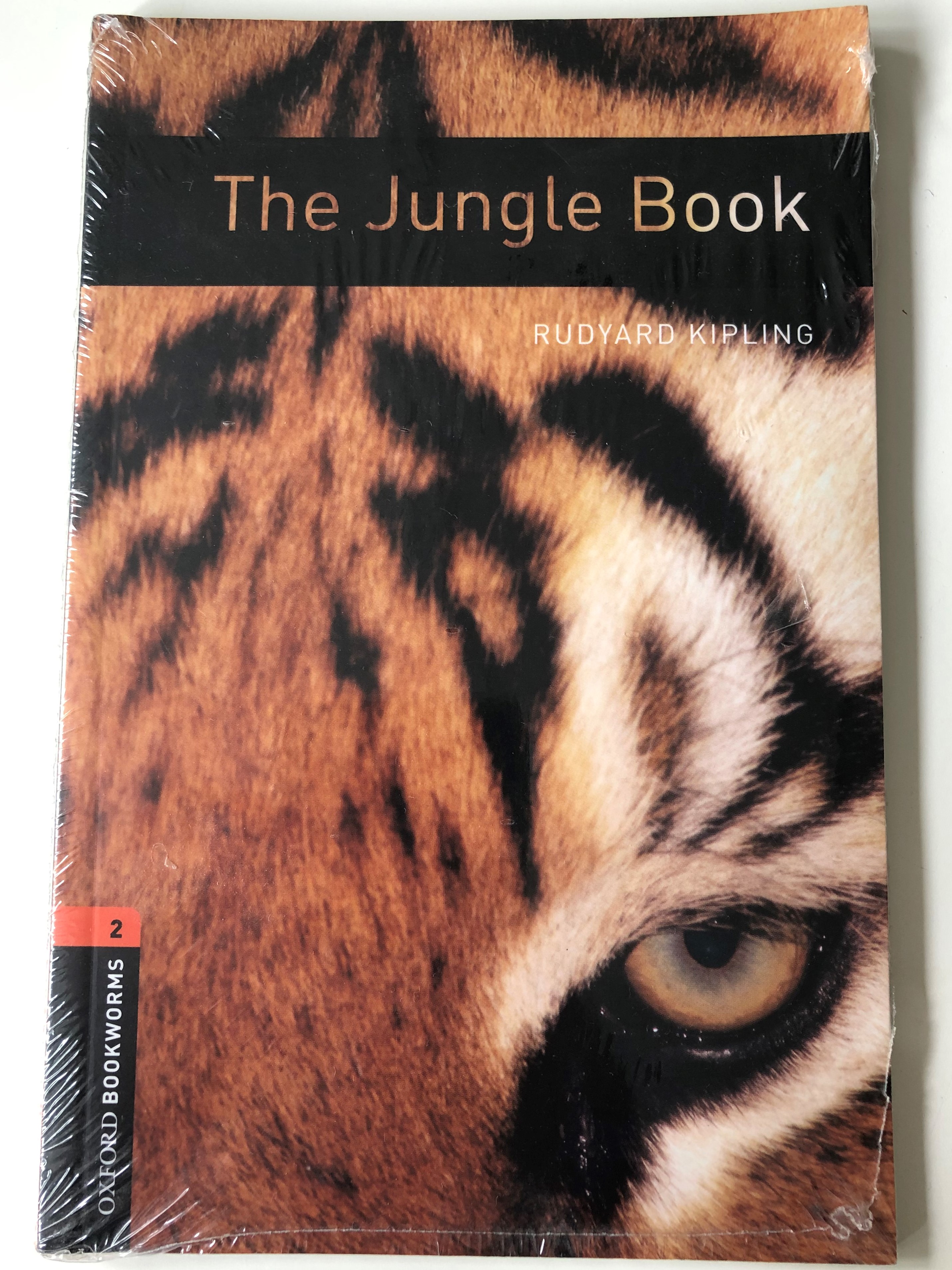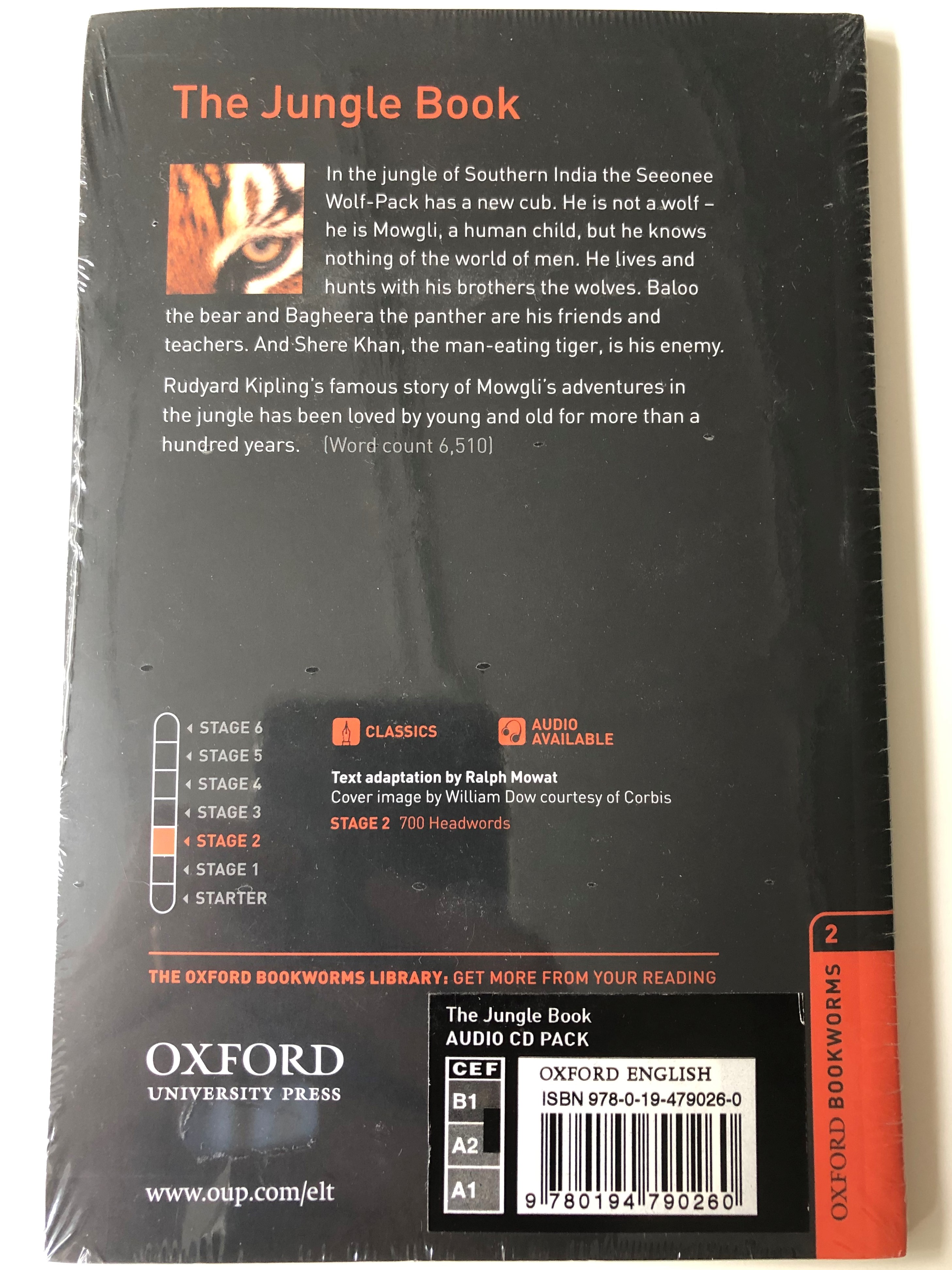Description
The Jungle Book by Rudyard Kipling / Oxford bookworms series Stage 2-700 headwords / Audio CD Pack / Text adaptation by Ralph Mowat
ISBN: 9780194790260 / 978-0194790260
ISBN-10: 0194790266
PUBLISHER: Oxford University Press
LANGUAGE: English
Text adapted by Ralph Mowat
Word Count : 6.510
Description:
In the jungle of Southern India the Seeonee Wolf-Pack has a new cub. He is not a wolf - he is Mowgli, a human child, but he knows nothing of the world of men. He lives and hunts with his brothers the wolves. Baloo the bear and Bagheera the panther are his friends and teachers. And Shere Khan, the man-eating tiger, is his enemy.
Joseph Rudyard Kipling (/ˈrʌdjərd/ RUD-yərd; 30 December 1865 – 18 January 1936)[1] was an English journalist, short-story writer, poet, and novelist. He was born in India, which inspired much of his work.
Kipling's works of fiction include The Jungle Book (1894), Kim (1901), and many short stories, including "The Man Who Would Be King" (1888).[2] His poems include "Mandalay" (1890), "Gunga Din" (1890), "The Gods of the Copybook Headings" (1919), "The White Man's Burden" (1899), and "If—" (1910). He is seen as an innovator in the art of the short story. His children's books are classics; one critic noted "a versatile and luminous narrative gift."
Kipling in the late 19th and early 20th centuries was among the United Kingdom's most popular writers. Henry James said, "Kipling strikes me personally as the most complete man of genius, as distinct from fine intelligence, that I have ever known." In 1907, he was awarded the Nobel Prize in Literature, as the first English-language writer to receive the prize, and at 41, its youngest recipient to date. He was also sounded for the British Poet Laureateship and several times for a knighthood, but declined both. Following his death in 1936, his ashes were interred at Poets' Corner, part of the South Transept of Westminster Abbey.
The Jungle Book (1894) is a collection of stories by the English author Rudyard Kipling. Most of the characters are animals such as Shere Khan the tiger and Baloo the bear, though a principal character is the boy or "man-cub" Mowgli, who is raised in the jungle by wolves. The stories are set in a forest in India; one place mentioned repeatedly is "Seonee" (Seoni), in the central state of Madhya Pradesh.
A major theme in the book is abandonment followed by fostering, as in the life of Mowgli, echoing Kipling's own childhood. The theme is echoed in the triumph of protagonists including Rikki-Tikki-Tavi and The White Seal over their enemies, as well as Mowgli's. Another important theme is of law and freedom; the stories are not about animal behaviour, still less about the Darwinian struggle for survival, but about human archetypes in animal form. They teach respect for authority, obedience, and knowing one's place in society with "the law of the jungle", but the stories also illustrate the freedom to move between different worlds, such as when Mowgli moves between the jungle and the village. Critics have also noted the essential wildness and lawless energies in the stories, reflecting the irresponsible side of human nature.
The Jungle Book has remained popular, partly through its many adaptations for film and other media. Critics such as Swati Singh have noted that even critics wary of Kipling for his supposed imperialism have admired the power of his storytelling.[1] The book has been influential in the scout movement, whose founder, Robert Baden-Powell, was a friend of Kipling's. Percy Grainger composed his Jungle Book Cycle around quotations from the book.






















